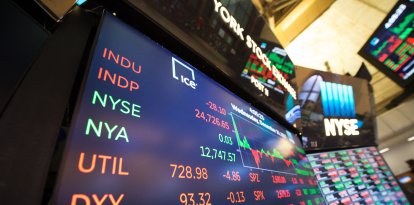World economy "dangerously close" to recession
The global growth forecast is cut by almost half. This is the third weakest annual expansion in three decades.

(Voz Media - Pexels)
This 2023, the global economy will be "dangerously close" to a recession driven by weaker growth in all of the world's major powers: the United States, Europe and China, the World Bank warned.
In an annual report, the World Bank noted that this year it had cut its global growth forecast by almost half (1.7%) from its previous projection of 3%. If that forecast proves correct, it would be the third weakest annual expansion in three decades, behind only the deep recessions that resulted from the 2008 global financial crisis and the Covid-19 pandemic in 2020.
United States
The report stated that while the U.S. may avoid a recession this year (the World Bank predicts its economy will grow by 0.5%), the global downturn will pose another hurdle for U.S. businesses and consumers, in addition to higher prices and more expensive borrowing rates.
The effects of the Biden Administration's policies also affected last year's markets. 2022 was the worst year since 1871 for the combined stock and bond markets. In the last 10 months, more than 200,000 full-time jobs have been lost.
Increase in interest rates
The study also noted that rising interest rates in the developed economies of the United States and Europe will attract investment capital from poorer countries, depriving them of domestic investment.
Also, high rates will slow growth in developed countries at a time when Russia's invasion of Ukraine has kept world food prices high. According to World Bank President David Malpass:
The impact of a global recession would be especially strong in the poorest countries in areas such as Saharan Africa, where about 60% of the world's poor reside.
Europe and China
The World Bank forecasts that the European Union economy will not grow at all next year after expanding by 3.3% in 2022. It projects that China will grow by 4.3%, almost one percentage point below what it had previously forecast.
The bank expects developing countries to fare better (with 3.4% growth this year) as well as in 2022. It forecasts that Brazil's growth will slow to 0.8% in 2023, down from 3% last year. In Pakistan, the economy is expected to expand by only 2% this year, a third of last year's pace.
A "bent but not broken" economy
The World Bank report is in line with the opinion of the head of the International Monetary Fund (IMF), Kristina Georgieva, who estimated in a CBS interview that one-third of the world will go into a recession this year:
Other economists have also given gloomy outlooks, although most of them are not so dire. JPMorgan forecasts slow growth this year for advanced economies and the world in general, but does not expect a global recession:

























